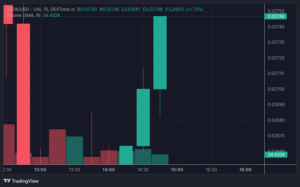
The Ditched Container Return Scheme, also known as the Container Deposit Scheme, is a program that encourages people to recycle their used containers by offering a refund for each container returned. This scheme has been implemented in various countries around the world, including Australia, Canada, and some states in the United States. The main goal of this program is to reduce the amount of waste that ends up in landfills and to promote a more sustainable way of living.
In New Zealand, the government has been considering implementing a Container Deposit Scheme for several years now. The scheme would require consumers to pay a small deposit when they purchase a beverage container, which would be refunded when the container is returned to a collection point. The idea behind this scheme is to incentivize people to recycle their containers rather than throwing them away, which would help reduce the amount of litter and pollution in the environment.
So how does the Ditched Container Return Scheme affect ordinary Kiwis and their contribution to pollution costs? For starters, it would encourage people to be more mindful of their consumption habits and to think twice before throwing away their used containers. By offering a financial incentive for recycling, the scheme would make it more appealing for people to take the extra step of returning their containers rather than tossing them in the trash.
In addition, the scheme would help reduce the amount of litter and pollution in the environment. According to a report by the Ministry for the Environment, around 252,000 tonnes of plastic waste is generated in New Zealand each year, with only around 28% of this being recycled. The rest ends up in landfills or as litter in our streets, parks, and waterways. By encouraging more people to recycle their containers, the Ditched Container Return Scheme would help reduce this waste and prevent it from polluting our environment.
Another benefit of the scheme is that it would create new job opportunities in the recycling industry. As more people start returning their containers, there would be a greater need for collection points and recycling facilities. This would create new jobs in areas such as logistics, sorting, and processing, which would help boost the economy and provide employment opportunities for Kiwis.
Of course, there are some concerns about the potential costs of implementing the scheme. Some opponents argue that it would be too expensive to set up the necessary infrastructure for collecting and processing the containers, and that these costs would ultimately be passed on to consumers in the form of higher prices for beverages. However, supporters of the scheme argue that the benefits would outweigh the costs in the long run, and that the government could provide subsidies or other incentives to help offset these costs.
Overall, the Ditched Container Return Scheme has the potential to make a significant impact on New Zealand’s environment and economy. By encouraging more people to recycle their containers, it would help reduce waste and pollution, create new job opportunities, and promote a more sustainable way of living. While there are some concerns about the costs of implementing the scheme, many Kiwis believe that the benefits would be well worth it in the long run.
- SEO Powered Content & PR Distribution. Get Amplified Today.
- PlatoAiStream. Web3 Intelligence. Knowledge Amplified. Access Here.
- Source: Plato Data Intelligence: PlatoData












